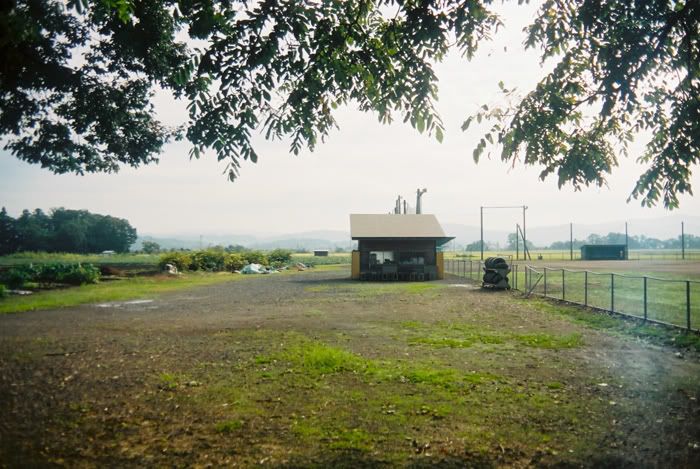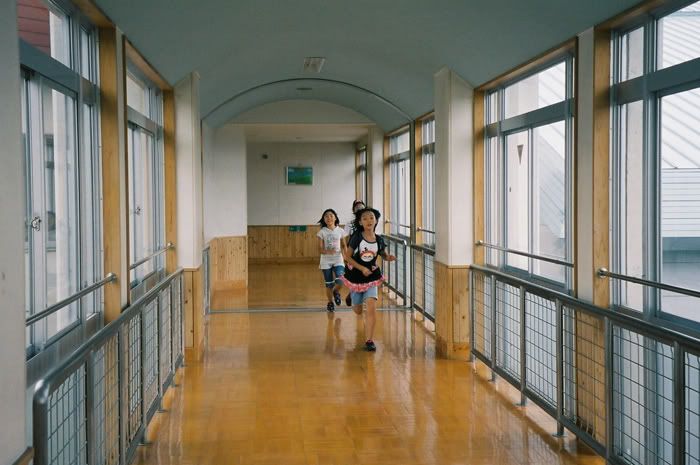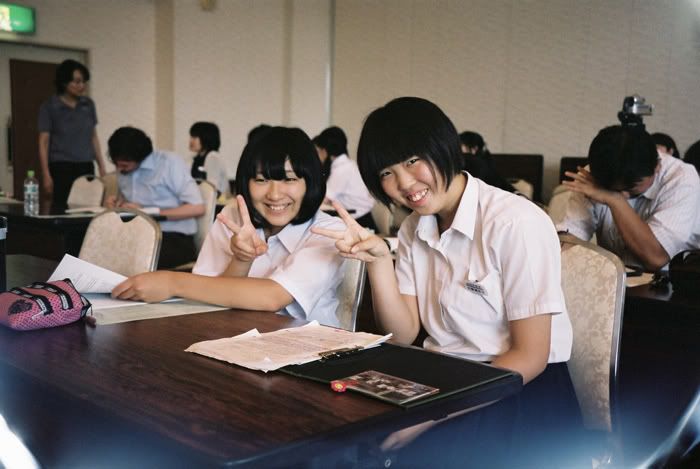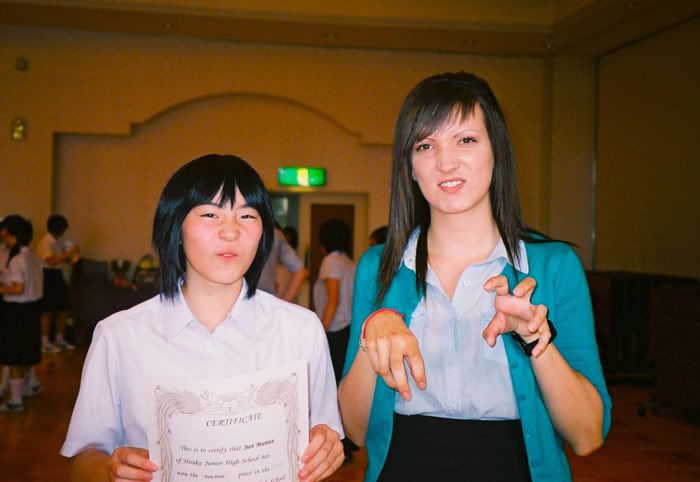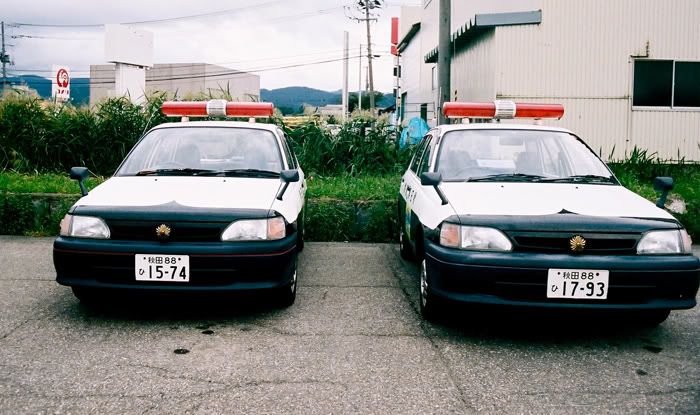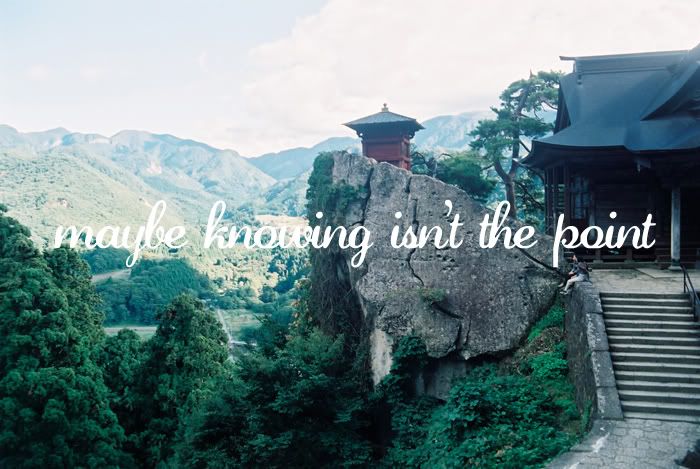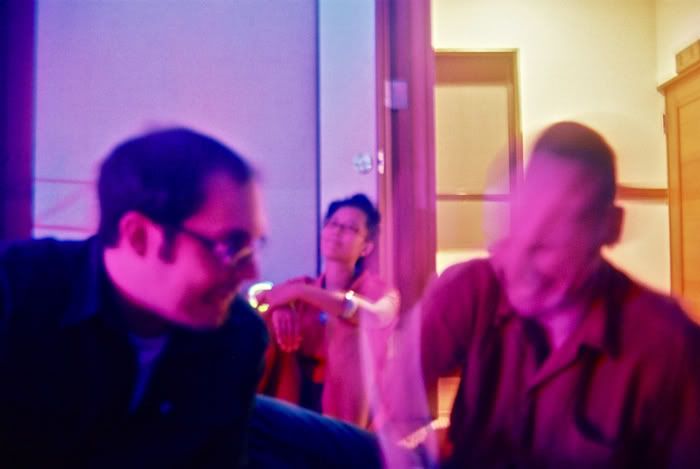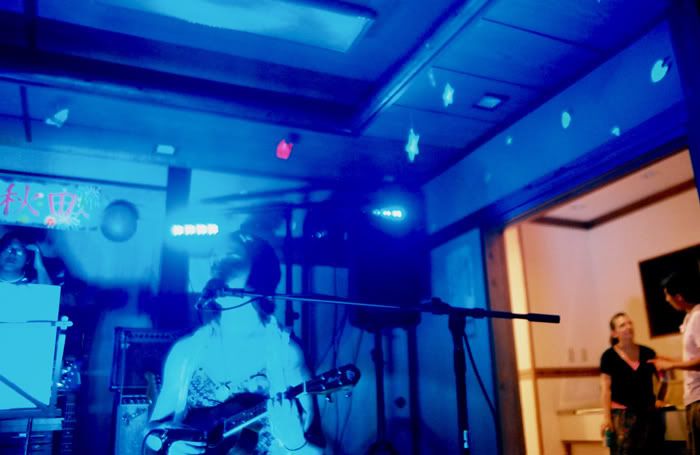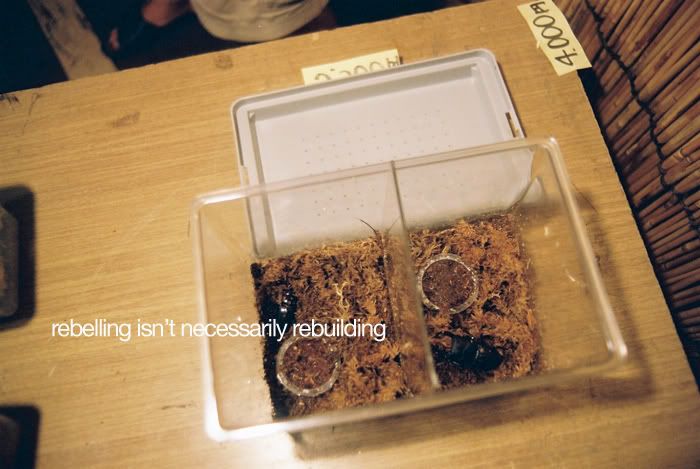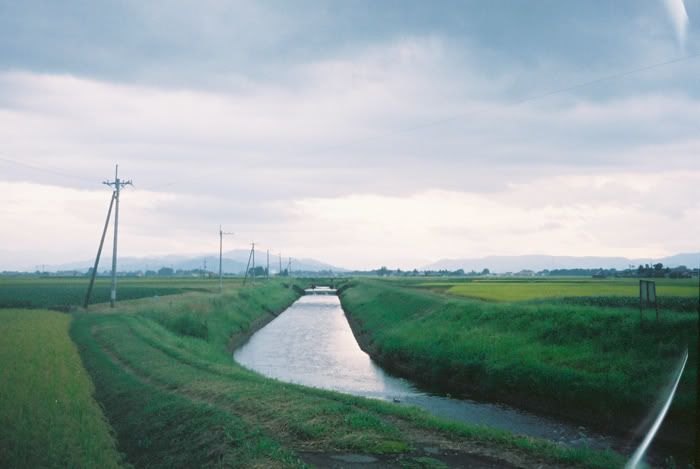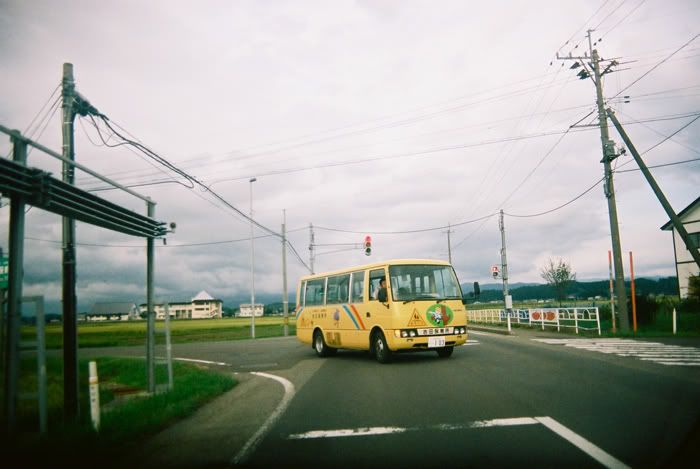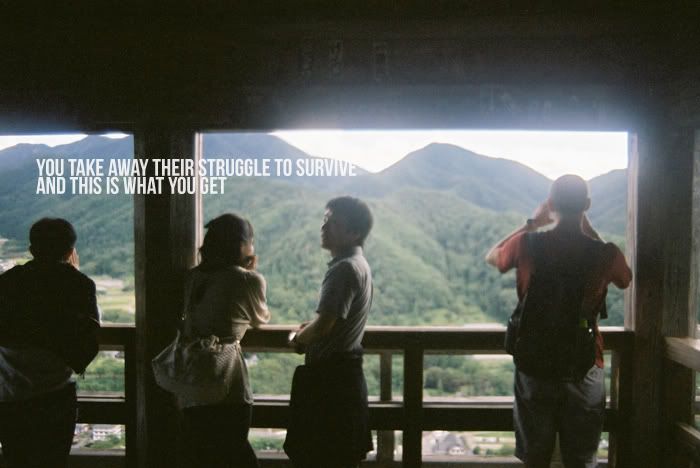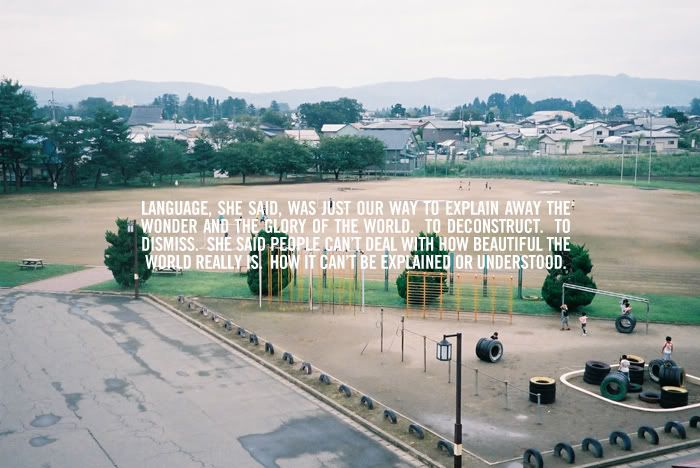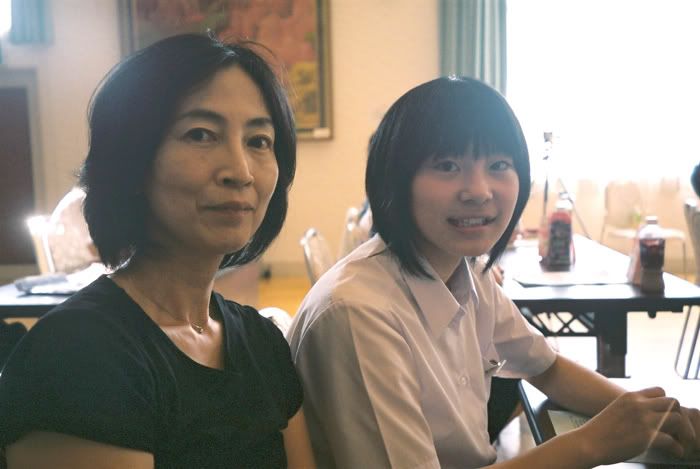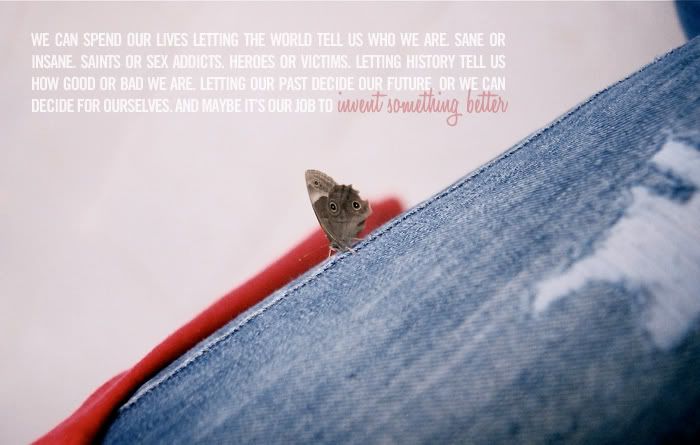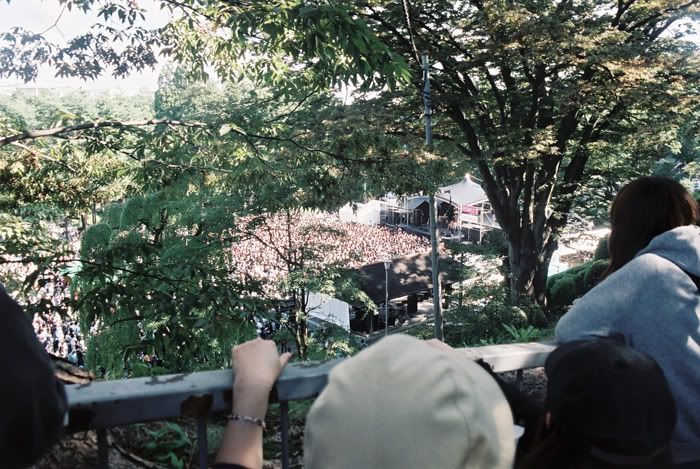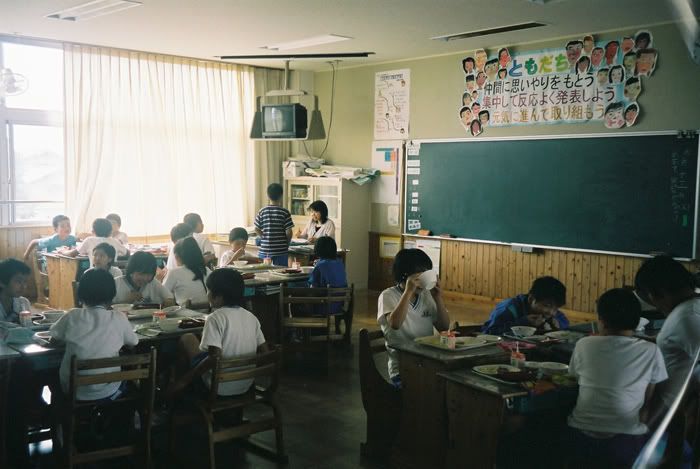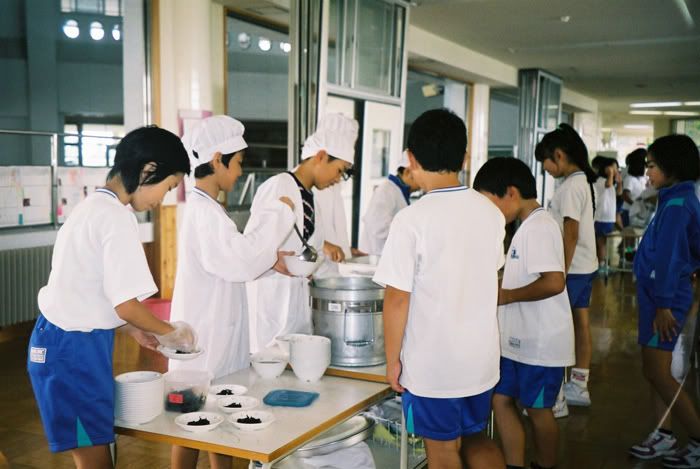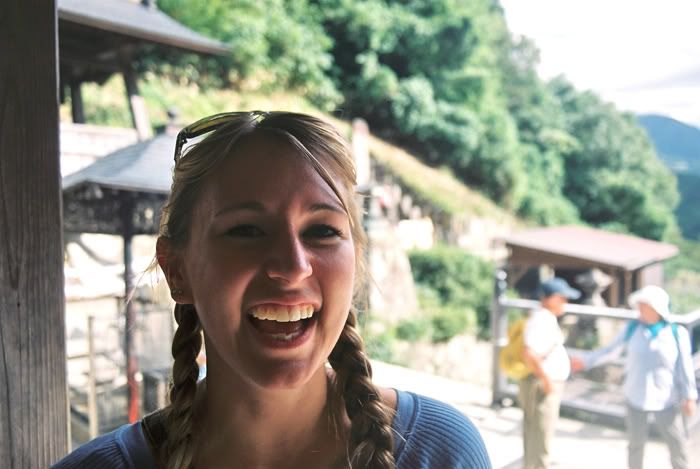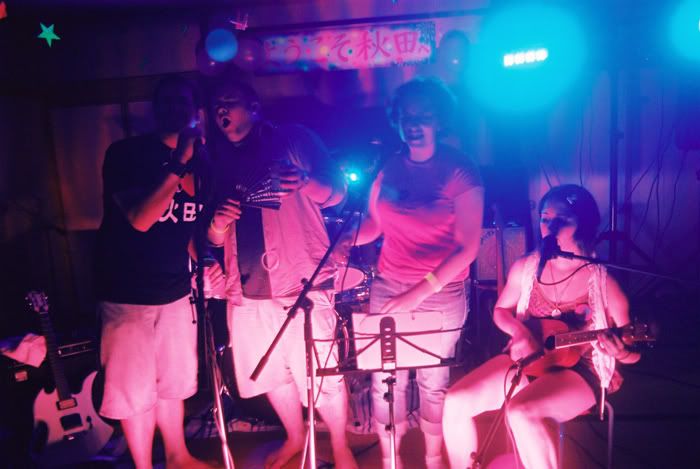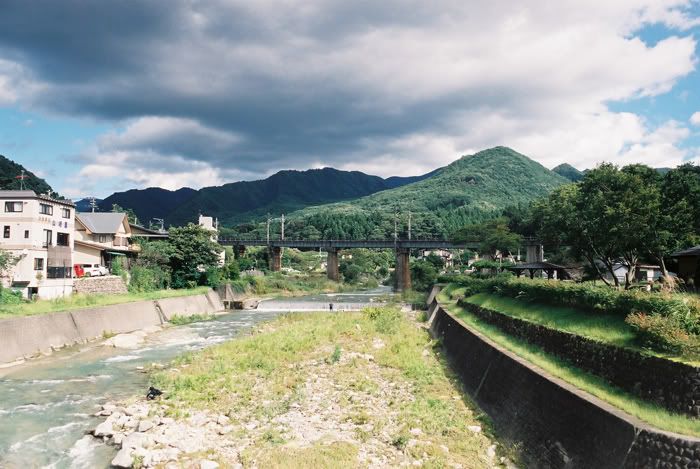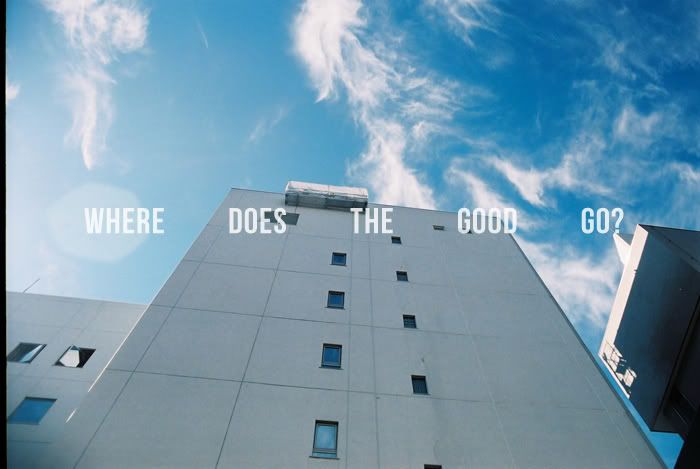Last month, I posted some thoughts I'd had while exploring this new country. Tonight, I will try to do that again.
I have been here for about seven weeks now, which is truly baffling to me. When I was accepted into the program, I intended to stay for a year, but I certainly don't think I've found what I was looking for yet in Japan, and I don't think 10 more months here will change that fact -- not because Japan doesn't have enough to offer, but because perhaps I was expecting to come here and stumble upon an array of self-realizations and epiphanies about my life and the world. I've felt this happen at different times, but the effect is much more gradual. It's the small details that I'm slowly piecing together to form a bigger picture, and I can't possibly imagine waking up here and feeling like I've found every intricacy that exists. It's like the talks that a friend and I have had about our stay here...our experiences in Japan will change us, but perhaps we won't notice these small changes until years later when we realize we are completely different from when our journeys first began.
Kind of like this:
“Right now I want a word that describes the feeling you get - a cold, sick feeling deep down inside - when you know something is happening that will change you, and you don’t want it to, but you can’t stop it. And you know, for the first time, for the very first time, that there will now be a before and an after, a was and a will be. And that you will never again be quite the person you were.”
-Jennifer Donnelly
I also remember during my first month in Japan, I was excited, but also a bit lonely and critical. The differences of the country stood out above all else...why is beauty so overemphasized? Why is art so underemphasized? Why does Japan care so much about recycling but then package everything with five times more plastic than is actually necessary? Why can't people pee confidently without having to turn on a speaker that plays ocean sounds over the sound of their urination? Why. Why. WHY? Now, I realize that I was essentially questioning why Japan is not America.
I was lost -- in so many ways.
I think perhaps that last paragraph sounds a bit depressing, and for a short period of time during my stay here, it may have been. But I think that part of immersing yourself into something new involves a bit of depressing self- and worldly-evaluations. If it's great from the very beginning, then you're not considering all the factors. It's when you can see something from every angle, and still appreciate it, that you have found something special. It's like falling in love. You can't love someone without finding their flaws and choosing to accept them. Now, it feels like I'm falling in love with Japan.
Like I said, at first I noticed a lot of things that made me ask, "why?" Now, I see a lot of things and I feel like I have a silent understanding of them. But above all, I think the most important realization I've had is that Japan is really not all that different from America, or anywhere else I'm sure. I wanted to go to Japan because I was looking for some sort of self exploration that could only be had in an extremely different and unfamiliar environment. And I'm left to think that maybe if I went to a different country whose society seems even more different, like Africa or the Middle East, that I'd have that sort of "out of body" mentality and new outlook on life. But then I'm left thinking that the answer is "
no." The level of humanity everywhere in the world is such a strong tie to everything else. Our houses can look different. Our weather may be completely opposite. And our languages may be indecipherable to one another. But no matter where you are, there will always be a level of humanity that connects you to the person beside you or next door to you or on the other side of the world from you. I think the most beautiful thing about Japan is that I never really needed Japan. I didn't need to fly 12 hours from my hometown to gain a better understanding of the world, I just needed to walk outside my front door knowing that what I see is what everyone sees, just in different ways or in different settings. It's really beautiful, the inherent connection we have to all things, people, and creatures.
I think I fully understood this thought when I was at an assembly last week at one the junior high schools I teach at. The entire assembly was spoken in Japanese and the students were leading nearly all of it. It felt sort of like any other school assembly, which was what stood out to me the most. I couldn't tell what they were saying, but I could tell when something was funny because the entire room would erupt in laughter -- usually when a goofy picture would pop up on the projector screen or when one of the students would forget their lines. I also noticed this a couple days ago when I was eating with my students during our lunch hour at school. They don't speak a whole lot of english and I don't speak a whole lot of Japanese, so one of the students pulled out his textbook as soon as I sat down at their table. I mostly spoke to three students during that lunch and they were really sincere and tried to speak with me, but what struck me the most was how much they were laughing about the situation. I think students get a bit nervous when they have to interact with me for longer than 20 seconds because...what if they mess up their english? What if they run out of things to say? What if they use Japanese and I don't understand? What if I'm a crazy bitch and will think they're stupid for not fluently speaking the most confusing language, ever? I'm almost certain that these thoughts run through their heads, and I could see them in full effect at the lunch table that day. But instead of freezing up with nerves, they laughed. They laughed so much that apple juice came out of one of their noses and I had a front row seat to wide-open mouths full of udon that had to wait to be chewed while endless laughing took place...the kind of laughing where you're nearly crying and no noise is coming out. From the vibes and laughter I got, they must have been thinking, out of alllll the students in the school, the foreigner had to sit with US? But we don't speak english. Let's get out this english textbook and find questions to ask her so we don't look like idiots. But wait! We still probably look like idiots because we're desperately reading questions out of a textbook to ask her. Fuck, where was that chapter about sports or something? Maybe we can ask her about that. And why is there an entire chapter about Mother fucking Teresa? What the fuck am I going to ask her about Mother Teresa? Fuck fuck fuck. *LAUGHING LAUGHING LAUGHING* "You're cute!"
I'm assuming their dialogue went something like that and I could tell their laughter was the slightly embarrassed, how-did-we-find-ourselves-in-this-mess kind of laughter and I knew exactly how they felt. It was one of my funnest and most enlightening experiences with students that I've had here so far. To fully understand their sentiments and their joy and share a pure conversation in the only language we both speak fluently -- laughter.
Anyways, this is really long and potentially boring. I have so many more things and thoughts to share, but I'll save them for another day. I am not sure how well I've conveyed my feelings right now, but I am really happy with where I'm at in Japan. I'm understanding the small nuances that used to confuse and overwhelm me and I am so appreciative to be in this beautiful place.
じゃあね,
M
